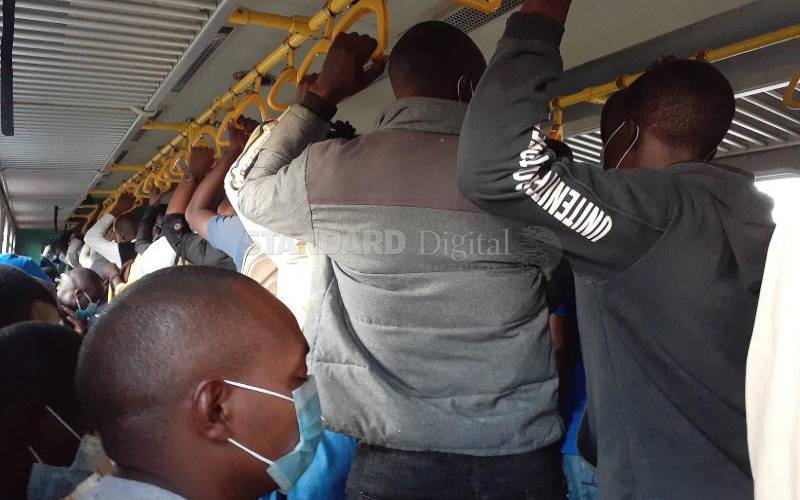
Navigating public transport during the pandemic has been a challenge to both commuters and operators. [Wilberforce Okwiri, Standard]
It is half-past 3pm on a hot afternoon in Nairobi and everyone seems to be in a rush.
At the Nairobi Railways Station, you literally have to squeeze yourself through the heavy human traffic as commuters are either arriving or exiting the city.
 The Standard Group Plc is a multi-media organization with investments in media
platforms spanning newspaper print
operations, television, radio broadcasting, digital and online services. The
Standard Group is recognized as a
leading multi-media house in Kenya with a key influence in matters of national
and international interest.
The Standard Group Plc is a multi-media organization with investments in media
platforms spanning newspaper print
operations, television, radio broadcasting, digital and online services. The
Standard Group is recognized as a
leading multi-media house in Kenya with a key influence in matters of national
and international interest.











